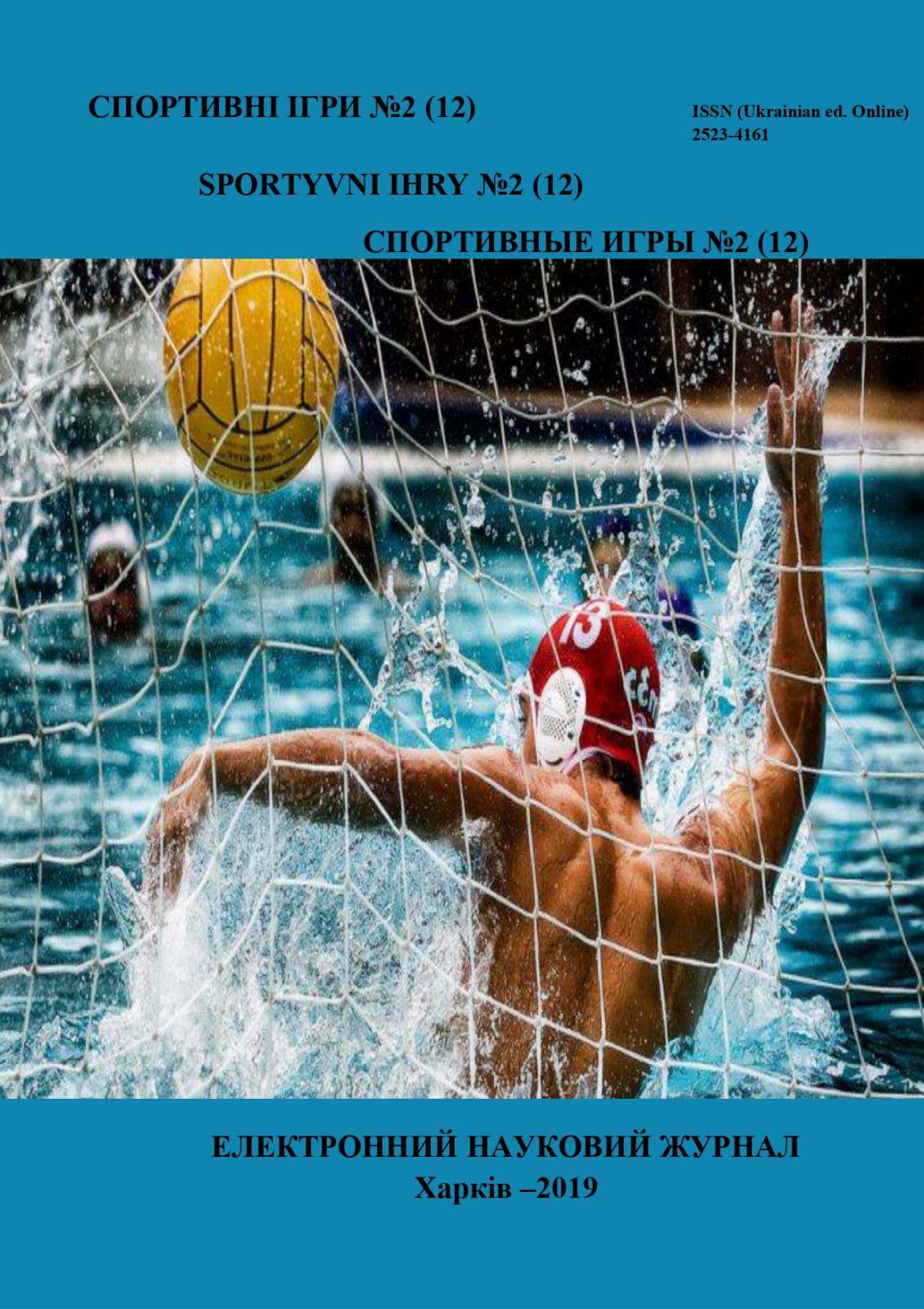Influence of the size of the sports ground on indicators of vestibular stability and peripheral sight of volleyball players of the student’s team.
DOI:
https://doi.org/10.15391/zenodo.2544959Keywords:
vestibular analyzer, visual sensor system, volleyball players, rotary loadsAbstract
Purpose: definition of influence of the size of the sports ground on indicators of
vestibular stability and peripheral sight of volleyball players of the student’s team. Material and
methods: theoretical analysis and generalization of scientific and methodical literature, methods of
definition of functional state of visual and vestibular analyzers before and after standard vestibular
loads on Barany chair, methods of mathematical statistics. Vestibular analyzer stability was
determined by indicators: accuracy of definition of the set time 10 (s), run speed when performing a
certain task 4X9 (s) and deviations from a straight line on the 5th meter piece (cm). The perimetry
method was used for definition of a visual field. 12 sportsmen of the national team of KhSAPC
participated in the research. Results: It is defined that vestibular stability of volleyball players and
level of peripheral sight with increase in the size of the gym slightly worsens (p>0,05) and only the
indicator "deviation from a straight line" had reliable character (р>0,05). Increase in the ground
of testing till the sizes of sports stadium caused in the test "definition of an error of the set time",
both before and after vestibular load, slightly the best changes in comparison with the gym.
However statistically reliable differences between the results received in the gym and at the stadium
were observed only on the testing indicators "deviation from a straight line", both before and after
rotary loads (р<0,05). Comparison of results of peripheral sight of volleyball players in the gym
and at the stadium revealed insignificant improvement of indicators at the open stadium (p>0,05).
References
Беляев, А. В. (2008). Волейбол: учебник для вузов. М. : Фізкультура і спорт, 2008.
Батуев, А. С. (2009). Физиология высшей нервной деятельности и сенсорних систем: Учебник для вузов. ПСб. : Питер.
Блещунов, Н. В. (1974). Влияние раздражений вестибулярного анализатора на соматовегетативные реакции у спортсменов с учетом возраста и спортивной квалификации: автореф. дис. на соискание ученой степени кандидата биологических наук. (Кандидатская диссертация). Харьков, Украина.
Кузьменко, І. О. (2010). Зміна рівня розвитку окремих координаційних здібностей школярів середніх класів під впливом спеціально спрямованих вправ. Молода спортивна наука України, Вип. 14, Т. 2., 124-130.
Ломов, А. А. (1980). Влияние вестибулярной стимуляции на точность временных параметров движений. Физиологические основы управления движениями, 67-78.
Ровний, А. С. (2001a). Механізм сенсорного контролю точних рухів спортсменів протягом тренувального заняття. Теорія і методика фізичного виховання і спорту, 1, 31-34.
Ровний, А. С. (2001b). Сенсорні механізми управління точнісними рухами людини. Харків : ХДАФК.
Ровний, В. А. (2003). Дослідження залежності рівня активності сенсорних систем від спортивної майстерності. Матеріали V міжнародної наукової конференції студентів та аспірантів «Фізична культура, спорт та здоров’я », 40-41.
Шестерова, Л. Є. (2004). Вплив рівня активності сенсорних функцій на удосконалення рухових здібностей школярів середніх класів: автореф. дис. на здобуття наук. ступеня канд. наук з фіз. вих. і спорту. (Кандидатська дисертація). Харків, Україна.
Харченко, Е. (2017). Динамика соматических показателей баскетболистов под. влиянием специальных упражнений напрвавленных на повышение устойчивости вестибулярного аналізатора. Слобожанський науково-споривний вісник, 3(53), 104-108. doi:10.15391/snsv. 2016 – 3.020













